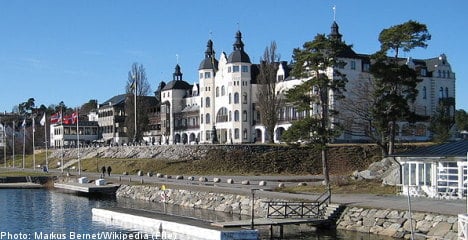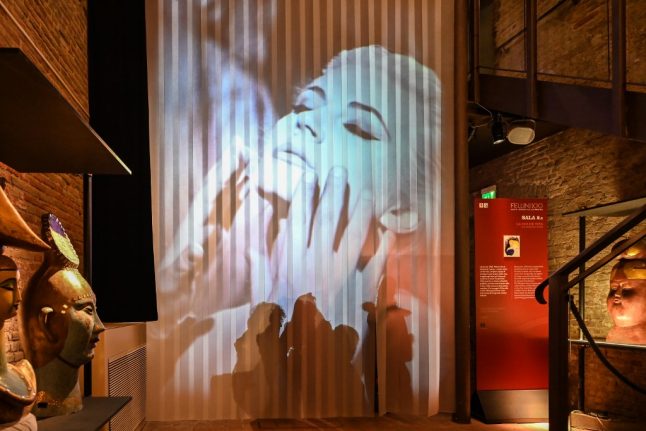For some, the Bilderberg Group conjures up images of powerful men hunkered down in a secluded compound, plotting moves that will ensure certain outcomes in the chess game of globalised business and politics.
While many participants are democratically elected leaders or accountable to shareholders in the companies they run, behind the closed doors of Bilderberg’s annual gatherings they are free to discuss and decide without any concern of being held responsible, conspiracy theorists allege.
Critics on the left allege backroom deals struck among Bilderberg attendees are an attempt to ensure the world is dominated by profit-hungry capitalists, while those on the right charge the group is seeking to impose some sort of global government.
But according to Dr. Ian Richardson, a visiting professor at Stockholm University’s School of Business and author of a forthcoming book on The Bilderberg Group, both sides are relying on faulty assumptions about the workings of global affairs.
“Conspiracy theorists have a black and white view of power and this power is extremely discreet,” he tells The Local.
“To suggest that they are consciously coming together to agree on objectives to change the world is wrong.”
The Bilderberg was formed in 1954 and first met at the Hotel de Bilderberg near Arnhem in the Netherlands. Since then its meetings, held annually either in Europe or North America, bring together representatives of power elites within business, the media and politics.
“The Bilderberg was a product of its time, with a significance in the Cold War and the emergence of NATO. Its members still share a common commitment to the Anglo-Saxon business and governance frameworks,” Richardson explains.
The Bilderberg is controlled by the steering committee, chaired by Étienne Davignon, the vice chairperson of engineering firm Suez-Tractebel and responsible for organising the annual meetings and selecting the exclusive group of 120-130 invited guests.
The meetings are held under tight security and the utmost secrecy. While members of the media sometimes attend, no interviews are given to the press and the group releases no statements.
“They meet in complete seclusion. Security is very strong. They meet in a private capacity, not as heads of state or whatever – self-interested and self-concerned,” Richardson says.
This secrecy has led to a wealth of speculation about the group and the internet is awash with conspiracy theories pertaining to their power and tentacles of influence, an assessment that Dr. Richardson rejects.
“They have been described as the modern day incarnation of the Illuminati,” he says, referring to the Enlightenment-era secret society.
“My book dispels many of these theories and is the first serious attempt to grapple with this group – why do they go? What is the consensus that emanates from the group?”
Dr. Richardson did however confirm that the Bilderberg was influential both in the development of the EU and the talks leading up to the introduction of the euro, but underlined that nothing is actually decided at the meetings.
“They do change the world, but they often don’t even know it themselves,” he says.
Those who defend the group argue that it is a merely a brainstorming meeting which helps power elites establish social cohesion and consensus.
Davignon has argued that the secrecy of the meetings enables participants to debate candidly, free of the concern that their comments might generate controversy, a point on which Richardson concurs.
“Without this secrecy Bilderberg would become just another talking shop. There is a myth that Davos is so open. There are journalists all over the place, but the discussions take place behind closed doors,” Richardson argues, referring to the Alpine location of the annual World Economic Forum summit.
The emergence of whistle-blower websites such as WikiLeaks has rendered these more discreet channels of diplomacy even more relevant, Dr. Richardson says.
“This back-room diplomacy continues to have enormous significance. You can’t find the common narratives if you are constantly being held to account. Without these groups how can we create the possibility for change?”
Sweden first hosted a meeting of the Bilderberg in 1962 in the exclusive Stockholm suburb of Saltsjöbaden, known for a 1938 agreement between business and union leaders which still forms the framework for Swedish industrial relations.
The suburb is also closely connected with the powerful Wallenberg family who own the Grand Hotel, the venue of both the Saltsjöbaden Agreement and the first three Bilderberg meetings held in Sweden (the fourth being held in Stenungsund in connection with the 2001 European Council summit in Gothenburg).
Jacob Wallenberg, chairperson of the family’s power base–holding company Investor, is on the Bilderberg steering committee.
He is the fourth Swede to have served on the committee, following his brother Marcus, former ABB head Percy Barnevik, former Ericsson president Björn Lundvall and former Saab-Scania head Sten Gustafsson.
Other famous Swedish attendees through the years have included King Carl XVI Gustaf, current foreign and prime ministers Carl Bildt and Fredrik Reinfeldt, former Social Democrat prime ministers Olof Palme and Tage Erlander, as well as a host of business leaders, such as SKF head Tom Johnstone and current BP chairperson Carl-Henric Svanberg.
“The Bilderberg has been pretty important for Sweden. In the context of countries (such as Sweden) who don’t wield a great deal of influence, this is an opportunity to exert far more personal influence – to transcend the limits of geo-political status,” Richardson says.
Former Social Democrat leader Mona Sahlin is one of only a relatively few female attendees and US Secretary of State Hilary Clinton was the first woman to have been bestowed the honour of greeting guests as they arrive, prompting rumours in some quarters that this meant she had the blessing of the Bilderberg in her run for the US presidency.
“The Bilderberg resembles an old boys network. Hardly surprising if you look at senior political posts and the boardroom. Then there is the social dimension – boys getting together and being boys,” Richardson says.
The Bilderberg was formed by leaders concerned with the growth of anti-Americanism in Western Europe and who aimed to encourage a renewed spirit of Atlanticism.
This remains its main mission almost 60 years after its foundation and has endured despite the massive changes in geo-politics and the world economy in the intervening period, with matters of economic and trade policy playing an increasingly important role in discussions.
And while conspiracy theorists will no doubt continue to criticise the group as an undemocratic and unaccountable force in world affairs, Richardson believes the Bilderberg will remain an important forum for addressing global challenges.
“It reflects the ongoing commitment to overcoming global problems by transcending the limitations of our office,” he says.
Ian Richardson is a researcher at Stockholm University Business School and a Visiting Fellow at Cranfield University School of Management. His book, entitled “Bilderberg People: Elite Power and Consensus in World Affairs”, goes on wide release on May 15th 2011.





 Please whitelist us to continue reading.
Please whitelist us to continue reading.
Member comments